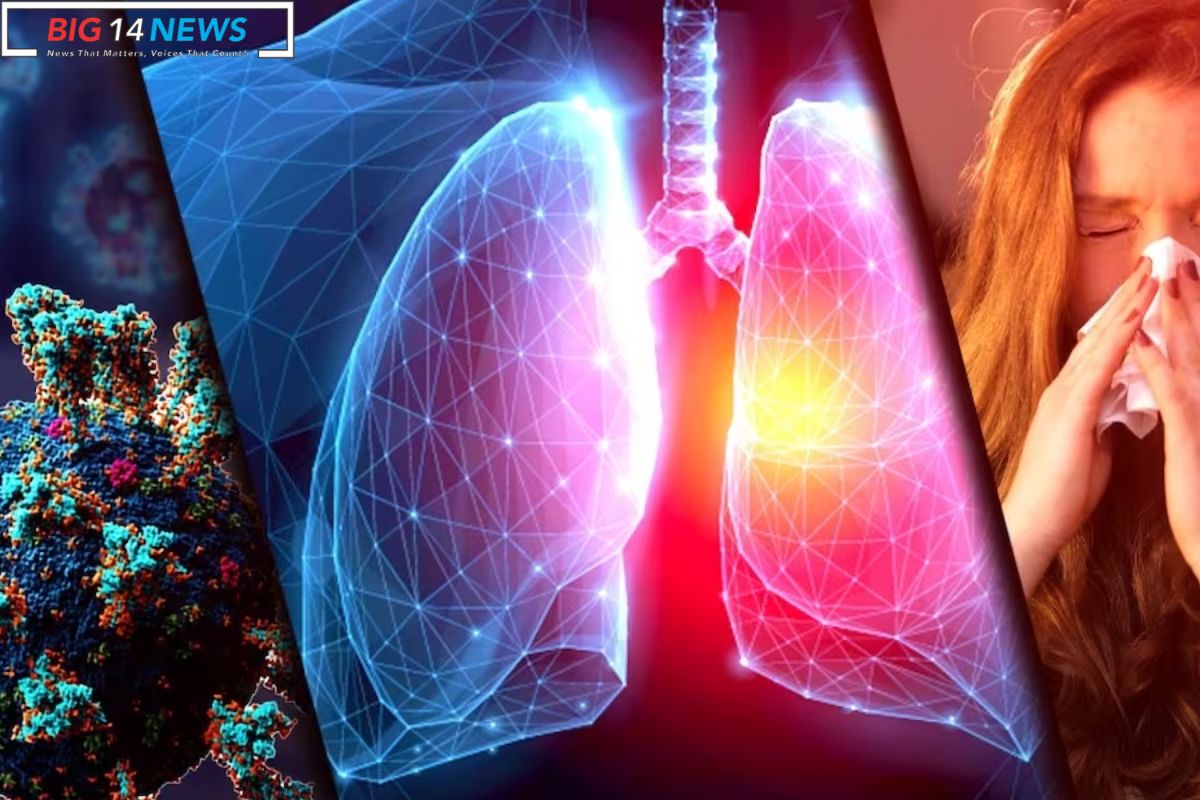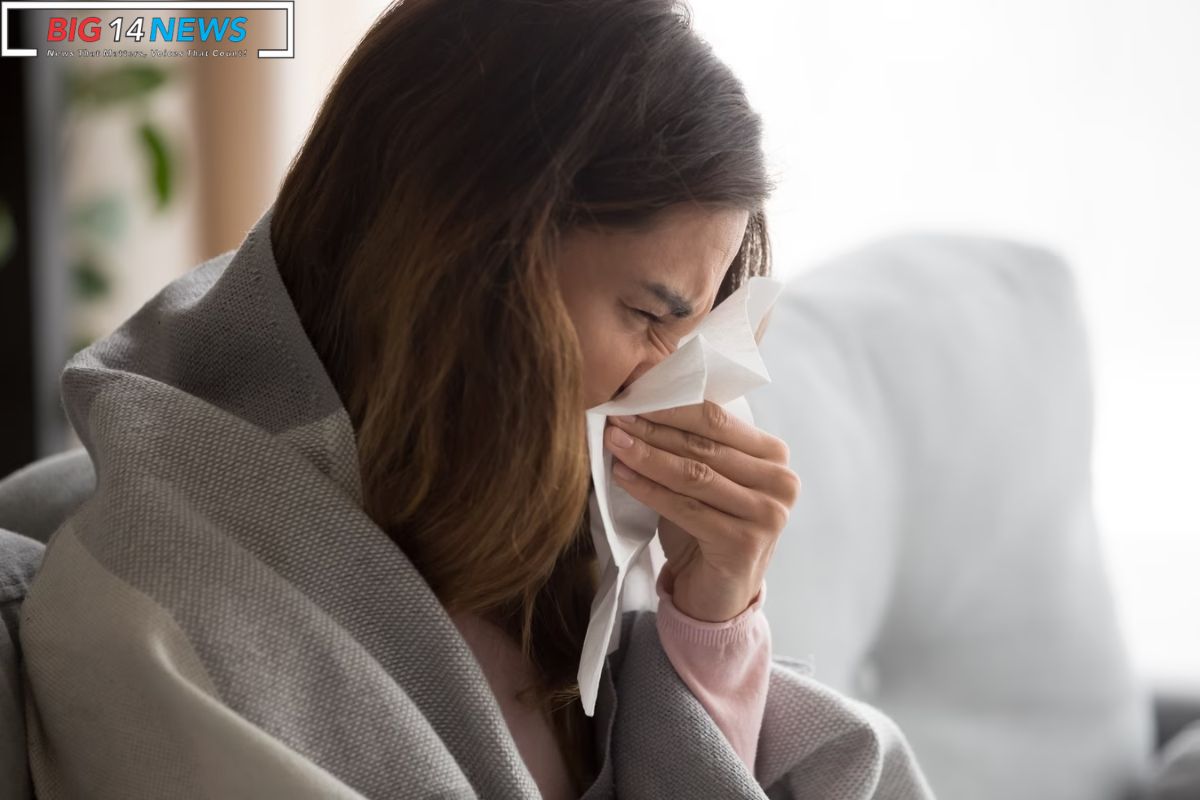Holiday Season Brings Surge: During the holiday season, there is often a significant increase in respiratory illnesses, including COVID-19, flu, and other respiratory viruses.
Recent data indicates a rise in hospitalization rates for COVID-19, although still lower than two years ago, while flu hospitalization rates have been on the rise. However, there has been a decline in hospitalization rates for respiratory syncytial virus (RSV).
To mitigate the risk of contracting these illnesses, it is crucial to continue practicing behaviors adopted during the pandemic, such as avoiding large gatherings and high-risk exposures. Regular handwashing and disinfection of frequently touched surfaces are also essential in reducing the spread of viruses.
Vaccination against COVID-19, flu, and potentially RSV can provide protection, although current vaccination rates indicate room for improvement.
If one falls ill, it is recommended to stay home, avoid spreading the illness, and seek medical attention, particularly for infants and individuals with underlying health conditions.
Key Takeaways
– Respiratory illnesses increase during the holiday season, including COVID-19, flu, and other viruses.
– Practicing behaviors from the pandemic can help reduce the risk of contracting an illness.
– Handwashing and disinfection of frequently touched surfaces are important in preventing the spread of viruses.
– Vaccination against COVID-19, flu, and RSV can provide protection against respiratory illnesses.
Rising Respiratory Illness Trends
There is an ongoing increase in respiratory illnesses during the holiday season, which can be attributed to various factors, including the impact of holiday travel and the effectiveness of respiratory masks.
Holiday travel often involves crowded airports, train stations, and other transportation hubs, where individuals from different regions come into close contact, increasing the risk of respiratory virus transmission.
Additionally, the effectiveness of respiratory masks in preventing the spread of respiratory viruses has been well-documented. Properly fitted masks, such as N95 respirators, can significantly reduce the risk of inhaling airborne pathogens. However, it is important to note that masks should be worn consistently and correctly, covering both the nose and mouth, to maximize their effectiveness.
Therefore, adopting preventive measures, including wearing respiratory masks, can play a crucial role in reducing the spread of respiratory illnesses during the holiday season.
Practices to Reduce Illness Risk
To reduce the risk of respiratory illnesses during the holiday season, it is essential to implement effective preventive practices. Here are some key practices to consider:
– Practice good hand hygiene: Regularly washing your hands with soap and water for at least 20 seconds can help reduce the spread of respiratory viruses.
– Reduce exposure risks: Avoid large gatherings and crowded areas where viruses can easily spread. If you must be in such settings, wearing a mask can provide an additional layer of protection.
– Clean and disinfect frequently touched surfaces: Regularly clean and disinfect surfaces such as countertops and doorknobs to prevent the spread of respiratory illnesses.
– Get vaccinated: Vaccination against COVID-19, flu, and other respiratory viruses can significantly reduce the risk of illness and its severity.
Importance of Handwashing and Disinfection
Practicing proper handwashing and disinfection is crucial in preventing the spread of respiratory illnesses during the holiday season. Hand hygiene practices, such as thorough handwashing with soap and water for at least 20 seconds, can effectively remove viruses from the hands. Additionally, using hand sanitizers with at least 60% alcohol can be an alternative when soap and water are not available. Disinfection techniques should also be implemented to clean frequently touched surfaces, as viruses can survive on surfaces for hours or even days.
To convey the importance of handwashing and disinfection, the following table illustrates the effectiveness of different cleaning methods in reducing the spread of respiratory illnesses:
| Cleaning Method | Effectiveness in Reducing Respiratory Illnesses |
| Handwashing | Highly effective |
| Hand sanitizers | Effective, but not as thorough as handwashing |
| Disinfecting wipes | Effective for cleaning surfaces |
| Disinfectant spray | Effective for larger areas and frequently touched surfaces |
Vaccination Options for Respiratory Viruses
Vaccination options for respiratory viruses include COVID-19, flu, and RSV vaccines.
– COVID-19 booster shots: As the Delta variant continues to circulate, COVID-19 booster shots have been recommended for certain populations, such as the elderly and immunocompromised individuals, to enhance immunity against the virus.
– Flu vaccines: Annual flu vaccines are crucial in preventing influenza infections. These vaccines are tailored to protect against the strains predicted to be most prevalent each flu season, offering effective protection against influenza viruses.
– RSV vaccination options: Currently, there is no approved vaccine for respiratory syncytial virus (RSV) available for the general population. However, high-risk individuals, such as premature infants or those with underlying health conditions, may be eligible for specific RSV immunoprophylaxis options to reduce the severity of RSV infections.
– Continued research: Ongoing research is being conducted to develop effective vaccines against respiratory viruses, including RSV. It is essential to stay updated on vaccination recommendations and guidelines provided by healthcare professionals to protect against these respiratory illnesses.
What to Do if You Get Sick
If you become ill during the holiday season, it is important to take appropriate actions to minimize the spread of respiratory illnesses.
First and foremost, it is recommended to stay home when feeling sick to avoid spreading the illness to friends and family. Infants under 6 months old should be especially cautious as they are unable to receive certain vaccines. Seeking medical advice is advised for infants experiencing fever or respiratory infection symptoms.


Also Read: North Al Health Check: A Roundup of Current Illnesses in Local Counties
Additionally, older individuals or those with chronic health conditions should contact a doctor for potential medications that can help avoid hospitalization. While seeking medical advice is crucial, self-care measures can also play a significant role in managing respiratory illnesses. Resting, staying hydrated, and managing symptoms such as coughing or fever can help alleviate discomfort.
It is important to follow healthcare professional recommendations and adhere to proper hygiene practices, such as frequent handwashing and disinfection of frequently touched surfaces, to prevent the spread of respiratory illnesses.
Impact of Large Gatherings on Virus Spread
The impact of large gatherings on the spread of respiratory viruses is a significant concern during the holiday season. As people come together in close proximity, the risk of virus transmission increases. Social distancing measures, such as maintaining at least six feet of distance between individuals, can help reduce the spread of respiratory viruses. Additionally, wearing masks in crowded areas has been shown to be effective in preventing virus spread.
Here are four key points to consider regarding the impact of large gatherings on virus spread:
– Large gatherings provide an environment where respiratory viruses can easily spread from person to person.
– Close contact and prolonged exposure increase the likelihood of transmission.
– Lack of social distancing and mask-wearing can contribute to the rapid spread of respiratory viruses.
– Implementing and adhering to these preventive measures can help mitigate the risk of virus transmission during large gatherings.
Risks for Unvaccinated or High-Risk Individuals
Unvaccinated or high-risk individuals face increased risks of respiratory illnesses during the holiday season. Large gatherings, which are common during this time, can have a significant impact on the spread of respiratory viruses.
Unvaccinated individuals are particularly vulnerable as they lack the protection provided by vaccines. These individuals are at a higher risk of contracting illnesses such as COVID-19, flu, and RSV. Moreover, high-risk individuals, such as those with chronic health conditions or compromised immune systems, are also more susceptible to severe illness if they do contract a respiratory virus.
It is crucial for unvaccinated or high-risk individuals to take necessary precautions, such as avoiding large gatherings and wearing masks in crowded areas, to reduce their risk of exposure to respiratory illnesses during the holiday season.
Protecting Infants and Older Individuals From Illness
Infants and older individuals are particularly vulnerable to respiratory illnesses during the holiday season. To protect these vulnerable populations from illness, it is important to take certain preventive measures.
Here are some key strategies for preventing transmission and keeping infants and older individuals safe:
– Limiting contact with large gatherings: Avoiding crowded places where viruses can easily spread is crucial.
– Vaccination: Ensuring that infants and older individuals are up-to-date on their vaccinations, including COVID-19, flu, and potentially RSV vaccines, can provide protection against respiratory viruses.
– Practicing good hand hygiene: Regularly washing hands with soap and water for at least 20 seconds or using hand sanitizers can help reduce the spread of viruses.
– Maintaining a clean environment: Disinfecting frequently touched surfaces, such as countertops and doorknobs, can help prevent the transmission of illnesses.
Conclusion Of Holiday Season Brings Surge
In conclusion, the holiday season brings a surge in respiratory illnesses, including COVID-19, flu, and other viruses. Hospitalization rates for COVID-19 remain lower compared to two years ago, but flu hospitalization rates are increasing. However, there has been a decline in hospitalization rates for RSV.
To reduce the risk of contracting these illnesses, it is important to continue practicing behaviors adopted during the pandemic, such as avoiding large gatherings and maintaining good hand hygiene. Vaccination against respiratory viruses is crucial, and seeking medical attention when ill is recommended.
Also Read: Unleash the Festive Fun: Must-Do Activities on Christmas Eve

